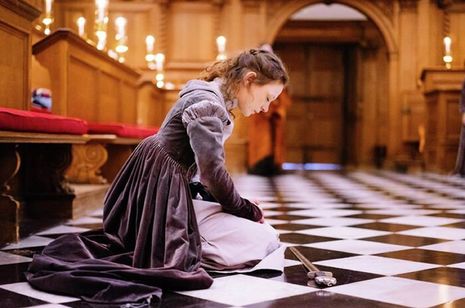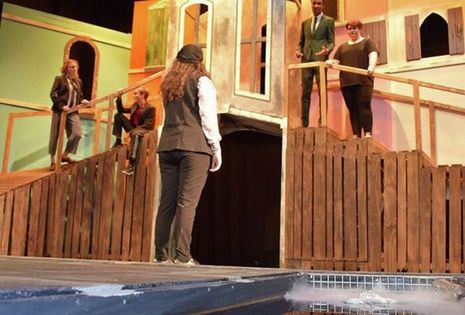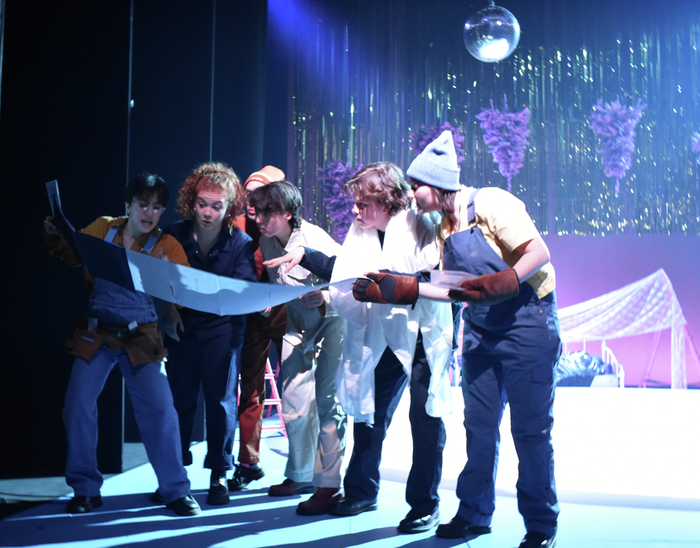If Shakespeare be the food of love, play on
Friends, Romans, students, lend me your ears: A review of the last 15 years of Shakespeare in Cambridge

The difficulty in directing Shakespeare is that each play has quite literally been done hundreds of times, challenging each new generation of directors to come up with increasingly original concepts for their own productions. Cambridge student directors have taken on this challenge with undeniable enthusiasm over the years, leading to several iconic (and a few insane) interpretations of the classics. Reviewing some of the most creative interpretations from the last 15 years, I hope to celebrate these ideas and to offer some inspiration to new directors tackling the task of making Shakespeare their own.
“The transformation of Romeo into a lesbian drug dealer certainly gave Romeo and Juliet a gritty update”
An undeniably modern approach to Shakespeare: gender swapped casts have found success in several productions around the world. This concept has also found much popularity in Cambridge theatre, including in a 2016 production of Richard II and a 2014 production of Romeo and Juliet. Richard II received a five star review for its subversion of this traditionally male-dominated play with its all-female cast. This refreshing update revisited the complex character from a female perspective, forcing the audience to reconsider the way they thought about Richard.
The transformation of Romeo into a lesbian drug dealer, meanwhile, certainly gave Romeo and Juliet a gritty update, which contradicted the typically conservative reputation that Shakespeare has perhaps unfairly gained. This modern update extended to the script itself, inserting the occasional “oh my god” or “f**k” into Shakespeare’s dialogue, hilariously undermining the lengthier poetic passages of the play.

By far the most popular directorial decision in student Shakespeare is the use of a different time period or setting for the play. A fascinating example of this is a 2017 production of The Tempest, which transformed the remote island of the play into a dystopian factory setting, with the oppressive wizard Prospero acting as a demanding executive surveying his spirit servants, now factory workers: a creative translation of the oppressive figure through a modern lens. Meanwhile, a 2016 production of Love’s Labour’s Lost saw the setting of the play shift to 1930s Cambridge. The period of pre-Second World War certainly fit the light-hearted tone of the play, and allowed students to see themselves in the characters as they experienced the familiar sights of Cambridge.
“The witches’ prophecies were delivered by dunking Macbeth’s head in a bucket of blood”
More politically-minded Shakespeare plays have been adapted to allude to real life figures, as was the case for Julius Caesar in 2010. Caesar became Margaret Thatcher in this production which was set in the 1980s ministerial cabinet, a creative and highly original attempt to show history repeating itself and, in my eyes, one of the most interesting interpretations of a much repeated play.
On the slightly more absurd end of this spectrum lies a 2012 production of Richard III which saw Richard become a 1990s Vladimir Putin. This production must be one of the most ridiculous and entertaining in Cambridge history, with all the characters becoming a series of outrageous Russian caricatures. The most bizarre example of this has to be a shirtless, vodka drinking Earl of Richmond Cossack dancing to Russian pop music on top of King Edward’s grave. Did it make sense? Probably not. Do I now wish that every Shakespeare production was set against a soundtrack of nothing but Europop? Obviously.
In 2009, a production of Macbeth included the idea of the witches’ prophecies to be delivered by dunking Macbeth’s head in a bucket of blood; an addition appreciated by the audience, if not by Macbeth himself. The following year, another production of Macbeth successfully terrified its audience by playing loud electronic sounds and screams as they entered the theatre, as well as having its witches rise from debris as they were introduced. This helped to place the play in a dystopian wasteland, allowing the script’s paranoia to truly be felt. Another original choice of setting: a 2017 production of The Merchant of Venice cleverly situated the events of the play in a game show, accompanied by references to Tinder and Nintendo to quirkily translate the courting of the play to the modern world. It was certainly an intelligent idea, though I would sadly refrain from calling it perfect due to its distinct lack of Russian pop music.
Shakespeare plays have seen their fair share of updates and re-imaginings in the hands of student directors, achieving varying degrees of success. However, the one point I would most like to make is that these highly creative productions are also the most memorable. If a director wishes to make their mark in Cambridge theatre, a fearlessness of experimentation, regardless of the outcome, may be more important than anything.
 News / University Council rescinds University Centre membership20 February 2026
News / University Council rescinds University Centre membership20 February 2026 News / Hundreds of Cambridge academics demand vote on fate of vet course20 February 2026
News / Hundreds of Cambridge academics demand vote on fate of vet course20 February 2026 News / Cambridge academics sign open letter criticising research funding changes22 February 2026
News / Cambridge academics sign open letter criticising research funding changes22 February 2026 News / Union cancels event with Sri Lankan politician after Tamil societies express ‘profound outrage’20 February 2026
News / Union cancels event with Sri Lankan politician after Tamil societies express ‘profound outrage’20 February 2026 News / Judge Business School advisor resigns over Epstein and Andrew links18 February 2026
News / Judge Business School advisor resigns over Epstein and Andrew links18 February 2026









